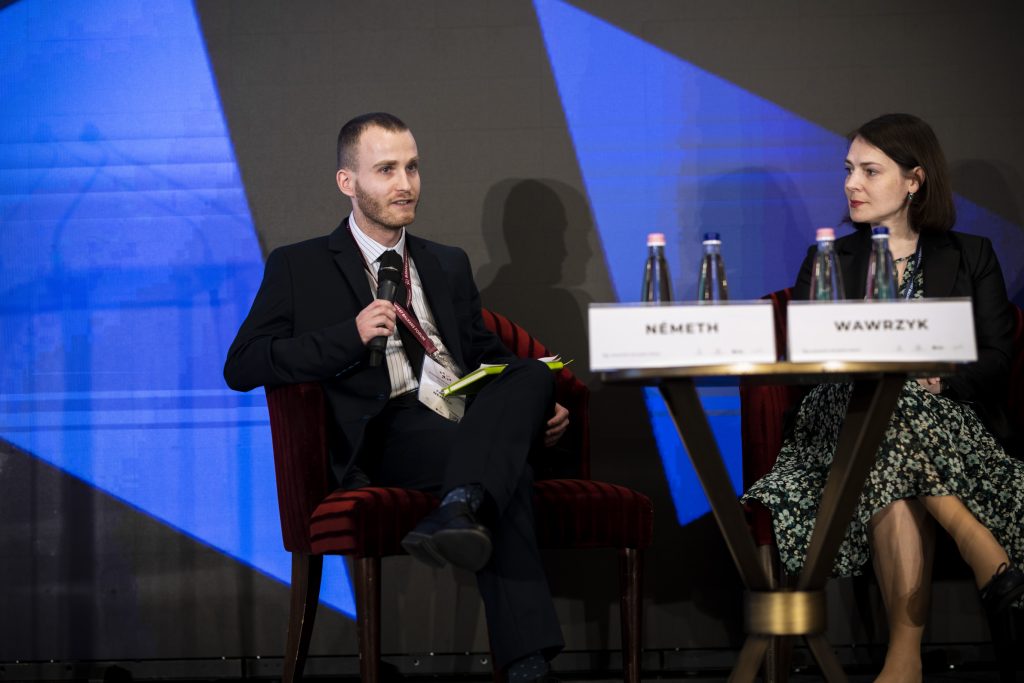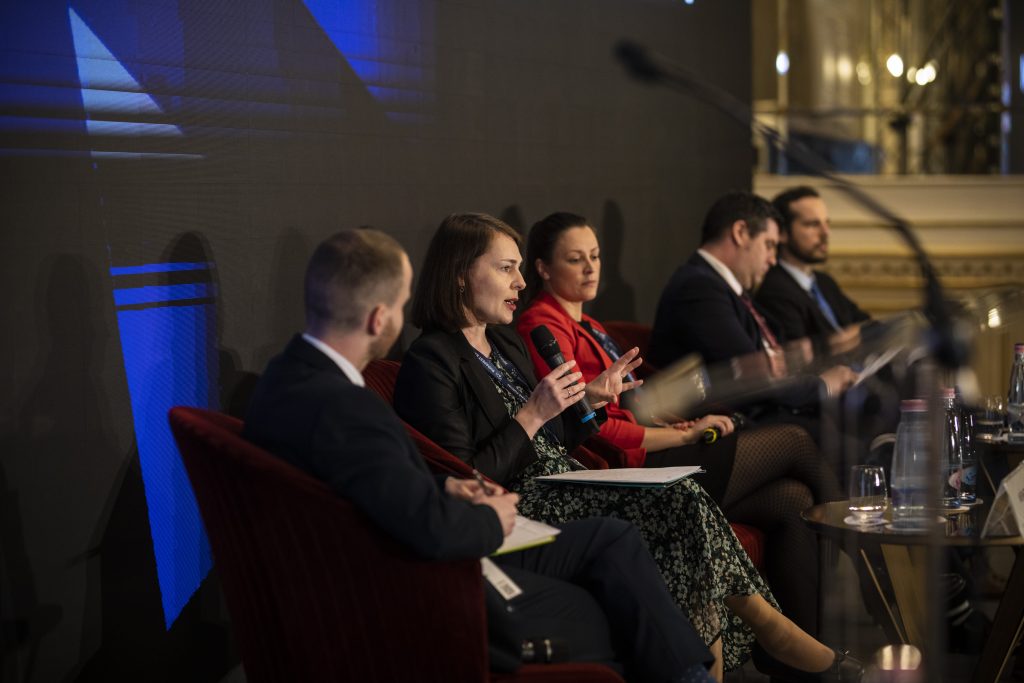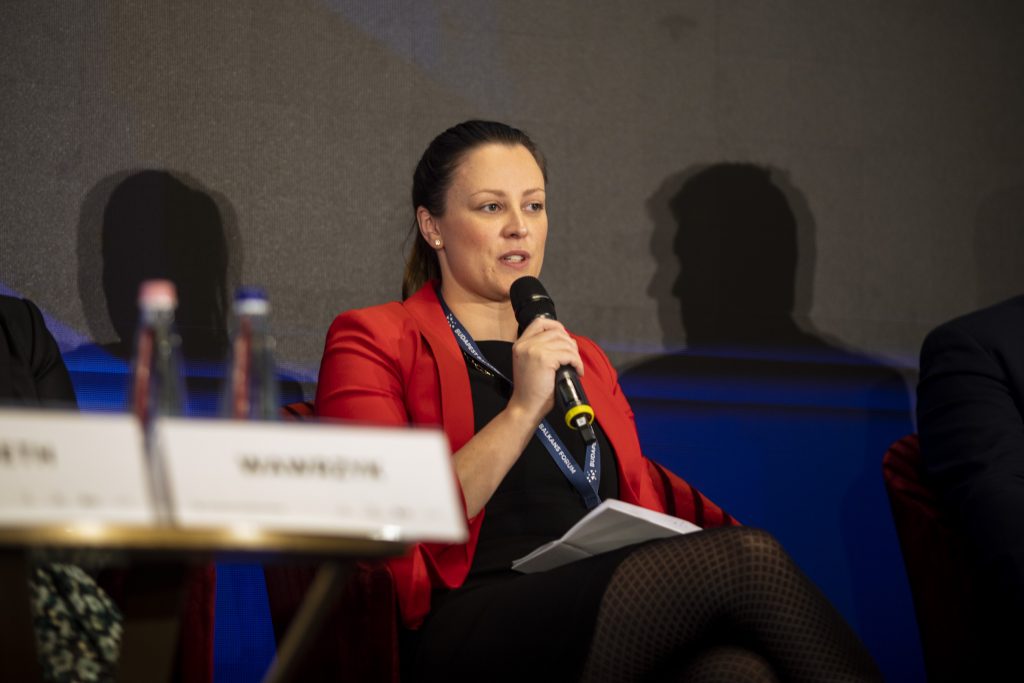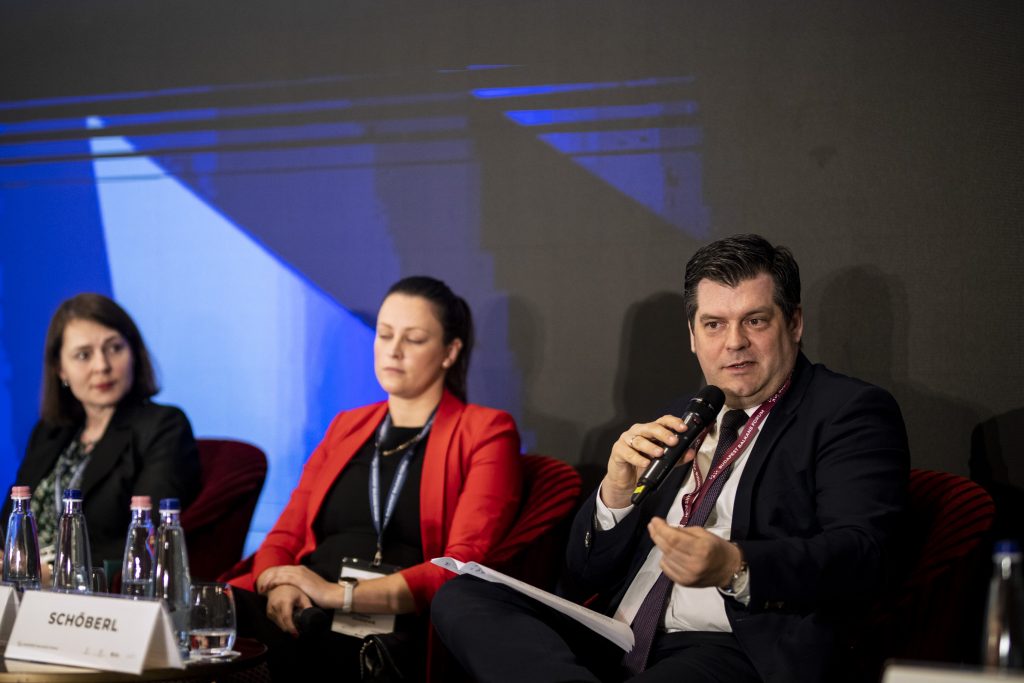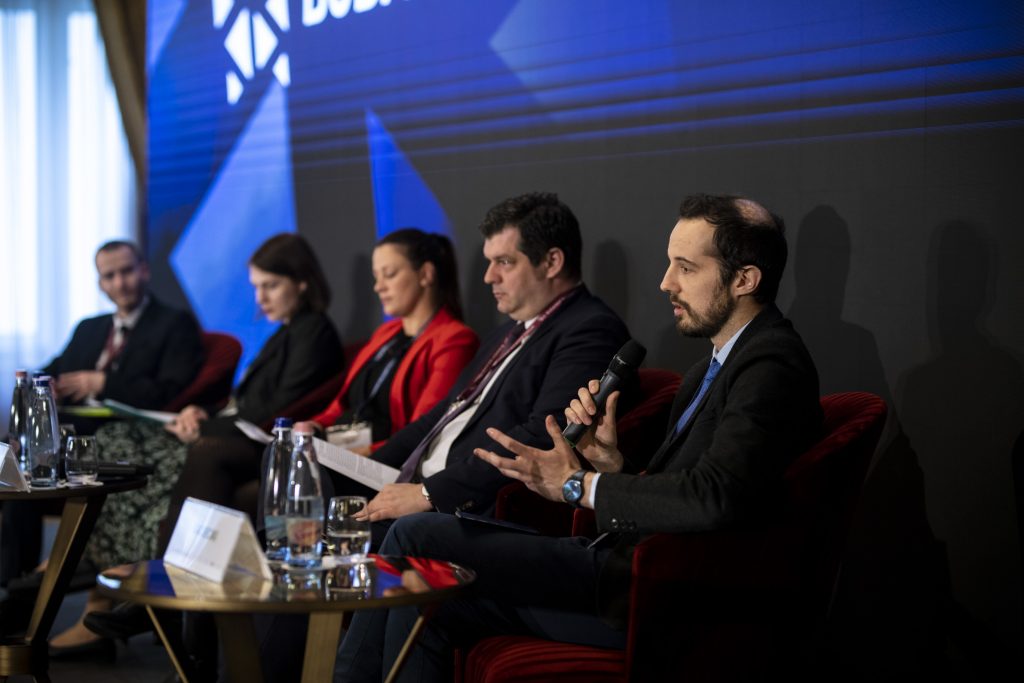On the second day of the Budapest Balkans Forum, the panel discussion entitled ‘Channelling Good Practices to the Western Balkans from a V4 perspective’ took place, along the moderation of Ferenc Németh, Program Manager and Research Fellow of the Institute for Foreign Affairs and Trade (IFAT). Panellists included representatives of think tanks from Visegrad countries as well as the International Visegrad Fund: Jana Juzová, Head of the Global Europe Programme of the EUROPEUM Institute for European Policy; Ambassador Márton Schőberl, Director of IFAT; Andrzej Sadecki, Head of the Central European Department of the Centre for Eastern Studies, Warsaw and Maja Wawrzyk, Deputy Executive Director of the International Visegrad Fund (IVF).
Participants first talked about the importance of connection between the Visegrad countries and the Western Balkans. Ms. Juzová highlighted that for the Czech Republic there are two major reasons behind its support towards the region: first, the Western Balkans is geographically close to the Visegrad countries. The second reason is that since Central Europe have a similar experience with EU accession process, therefore they feel solidarity and are willing to share their knowledge with the Western Balkan countries. Ambassador Schőberl, representing the Hungarian perspective, highlighted the protection of Hungarian minorities living in Vojvodina (Serbia) as a crucial factor for the support of the region’s EU integration. The reconciliation between Hungary and Serbia can also serve as an example for the countries in Western Balkans. The support towards the Western Balkans from the V4 is still there, even though Russia’s war in Ukraine war brought a downfall for the Visegrad cooperation on a political level, pointed out Mr. Sadecki. He added that the Visegrad countries still have similar thinking in terms of the Western Balkans and EU enlargement, and similar will to find a common solution for the problems emerging in the region. Lastly, Ms. Wawrzyk talked about the birth of the International Visegrad Fund and emphasised that countries of the Western Balkans need to come together on a political level as the Visegrad countries did, should they wish to ease their EU accession process.
The second round of questions covered the role of think tanks and researchers concerning the cooperation between V4 and the Western Balkans. Mr. Sadecki underlined that their job is not only writing analysis but sharing practical experience, for example through the Civil Servant Mobility Program. Beyond the close cooperation on a personal level, Mr. Schőberl drew attention to the importance of experience-sharing and the ability to influence decision-making processes in the EU. Ms. Juzová talked about the connector role of think tankers but not only between V4 and WB6 countries, but also towards the West by enabling a deeper understanding about the region. Having been asked about the local representation in Brussels, Ms. Juzová replied that it is significant that topics important for the Visegrad countries are represented there, because without that these standpoints could not break into the “bubbles of Brussels”. The most important task in the view of Ms. Wawrzyk is to enhance people-to-people relations, which would help to overcome the–mostly historical–differences within Balkan countries.
The following themes of the panel discussion focused on the academic community and the improvement of the think tank community’s work. Mr. Sadecki believed that the importance of academic circles stems from the additional information about certain topics that only researchers can provide. Ms. Juzová found that building coalitions and consensus as well as having dialogue are the most important factors that could be improved. In addition to this, Mr. Sadecki thought that the people-to-people contact could be further developed. Lastly, talking about the issues between politics and the think tank community, Mr. Schőberl emphasised that it is important to “never close communication channels” because that is the basis of future consolidations.
